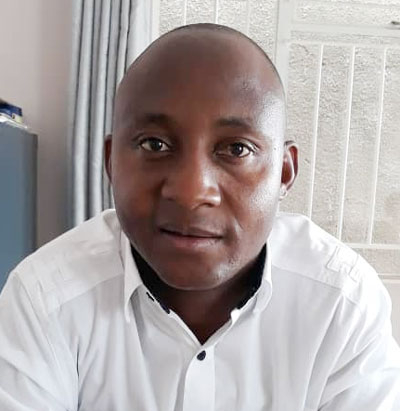
guest column:Johannes Marisa
The last four weeks have been quite difficult for our country with numerous new cases and increased mortality.
Many complicated cases of COVID-19 were recorded and at some point, it was almost impossible to get admission beds at either private or public hospitals.
Special mention goes to today’s heroes and heroines, the medical workers, who continued firing their ballistic missiles in order to contain and mitigate against the virus. It is not time to retreat.
Today, good news is filtering through that the positivity rate from the tests being run is now 12%, having fallen from an alarmingly 33% some days ago.
I can admit from what we have begun noticing on the ground that the incidence is going down plus the number of serious cases of COVID-19 is on the decline although our testing is not adequate.
The lockdown seems to be doing wonders, at least we can now have enough time to attend to the few difficult cases that are still under admission or are recuperating at home.
I have noted with concern that some deaths could have been avoided had people taken the necessary steps towards treatment.
- Chamisa under fire over US$120K donation
- Mavhunga puts DeMbare into Chibuku quarterfinals
- Pension funds bet on Cabora Bassa oilfields
- Councils defy govt fire tender directive
Keep Reading
The second wave of the pandemic calls for further action after self-isolation as complications seem to arise quickly and the good part is that some of the complications are not very difficult to manage during the early stage of the disease.
Respiratory distress syndrome, septic shock, thrombo-embolism, secondary bacterial infections and renal failure are some of them and correcting them is a big step that can result in very good prognosis.
However, challenges come from patients or their relatives who are busy self-prescribing themselves numerous drugs after getting wrong information on the internet or some of their so-called clinicians in the diaspora.
Some drug dealers are making a killing, selling all sorts of drugs on the black market. Some of the drugs are not even registered in our country and it is not surprising that they may be fake drugs that are merely branded.
This surely puts the life of many at risk.
I have witnessed two deaths of colleagues who thought everything was under control because a medical relative was giving instructions from United Kingdom.
We are faring better for our people than many Western countries because of the simple model we are pursuing considering the little resources we have in Africa.
The treat-early-to-avoid-complications method is yielding results unlike “treat-the-complicated-cases” model which many developed countries are following.
The other one had a daughter who works in Australia and she was the one remotely running the show. At one time, she was busy looking for an oxygen concentrator which unfortunately did not help much.
What is of importance is to get the real picture from the foot soldiers who will have examined the patients. Dictating what to give or what not to give is tantamount to murder. The result of such arrogance was very obvious — loss of life.
It is imperative that proper and intermittent medical check-up is undertaken for COVID-19 patients and it is not advisable to spend 14 days alone if you are not showing any signs of improvement.
That alone is enough signal that medical attention is indispensable and some important tests can be done by medical professionals and among them are:
Glucose levels — the comorbidity of diabetes mellitus is quite bad and sugar levels should be kept under check. At least 20% of all deaths of COVID-19 in Africa have been traced to diabetes.
How can a patient who is self-treating at home now know that he has diabetes mellitus if sugar levels are not checked?
Oxygen saturation levels — pulse oximetry can be done to check oxygen concentration in the tissues.
Normally, saturations should range from 95-100% but when the lungs are affected by the coronavirus, saturations can even crash to below 80% (requiring oxygen). Saturations below 50% in this second phase of the attack carry very poor prognosis despite high pressure oxygen or intubation.
Temperature, blood pressure and pulse — one of the commonest complications that we are observing in many patients during this second phase is septic shock.
Septic shock manifests with high temperature, high pulse but low blood pressure and it is one thing that needs early correction with intravenous fluids (drips) and intravenous drugs. If one stays at home and is being remotely managed from Canada, UK, USA, New Zealand, how can he know that he is getting into a septic shock that needs urgent attention? Medical intervention is required if we are to reduce mortality.
Chest X-rays — these are important and infections can be picked early.
Blood checks which include full blood count, lactate dehydrogenase, D-Dimer levels which can show clot formation tendency. Some patients have died because they blocked their blood vessels. Please get checked early.
Listen to medical advice, do not continue prescribing yourself drugs when your condition continues to deteriorate. Together, we will win this war!











